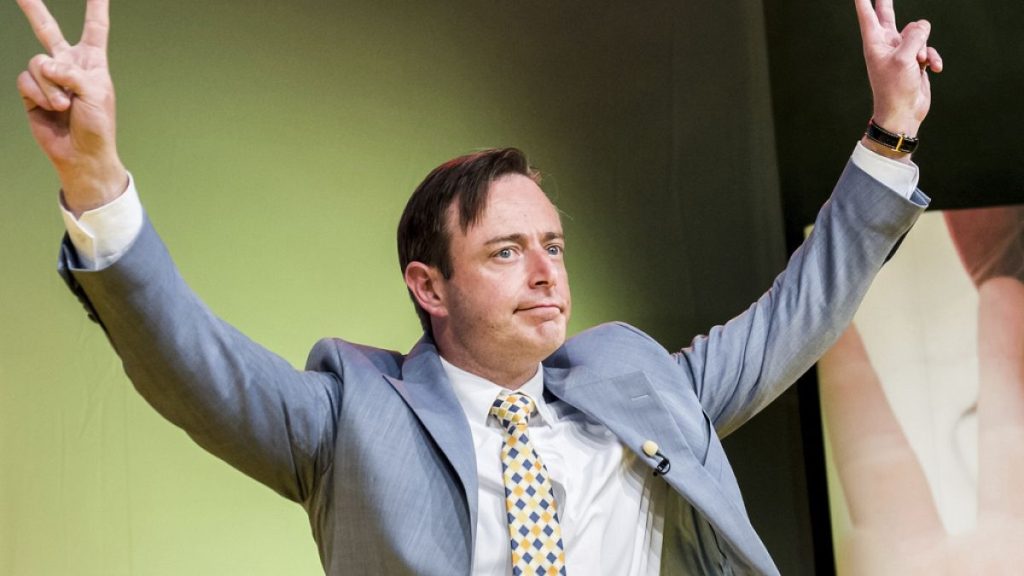Bart De Wever, the president of the New Flemish Alliance, has been tasked with exploring coalition possibilities to form a stable government in Belgium. His party, the N-VA, unexpectedly beat out the far-right Vlaams Belang party in the recent EU elections, making it Belgium’s largest political party. Flemish nationalist parties dominated the elections, while Prime Minister Alexander De Croo’s party suffered significant losses. The negotiations to form a coalition government will be complex due to the country’s linguistic and regional divisions, with Wallonia in the south and Flanders in the north. Vlaams Belang, a far-right party, has been excluded from entering past governments under a “cordon sanitaire” doctrine.
King Philippe appointed Bart De Wever to identify parties willing to form a stable coalition government at the federal level. De Wever will report back to the king in a week’s time on June 19th. The N-VA, with an expected 22% of the votes in the provisional results, retained its position as Belgium’s largest political party. Vlaams Belang came in second with 17.5% of the votes, ahead of the Socialist Voruit party with 10.5%. Prime Minister Alexander De Croo’s party managed less than 7% of the votes, leading to his resignation. The upcoming negotiations for a coalition government will likely be challenging due to the linguistic and regional differences in Belgium.
Belgium is divided along linguistic lines, with francophone Wallonia in the south and Dutch-speaking Flanders in the north. Governments in Belgium are typically formed by coalitions of parties from both regions. Vlaams Belang, a far-right party known for its anti-immigration stance, has been blocked from entering governments due to mainstream parties’ commitment to maintaining a “cordon sanitaire.” This doctrine aims to prevent the far-right party from gaining power, likening it to a protective barrier against the spread of infectious diseases. The exclusion of Vlaams Belang adds another layer of complexity to the coalition negotiations in Belgium.
As the largest political party in Belgium, the N-VA will play a crucial role in the upcoming coalition negotiations. Bart De Wever’s appointment to explore coalition possibilities highlights the N-VA’s position as a key player in shaping the future government. Despite predictions that Vlaams Belang would become the main political force in Belgium, the N-VA’s unexpected victory in the EU elections solidified its position as the largest party. With deep regional identities and linguistic divisions shaping Belgian politics, the formation of a stable coalition government will require careful navigation of these complexities.
The recent EU elections in Belgium saw a shift in the political landscape, with Flemish nationalist parties emerging as dominant forces. While Vlaams Belang secured a significant share of the votes, it was ultimately surpassed by the N-VA in terms of electoral support. Prime Minister Alexander De Croo’s party faced losses in the elections, leading to his resignation. The provisional results of the elections indicated a strong showing for Flemish nationalist parties, setting the stage for challenging negotiations to form a coalition government. The outcome of these negotiations will shape the future direction of Belgium’s political landscape and will require navigating the country’s linguistic and regional divides.


